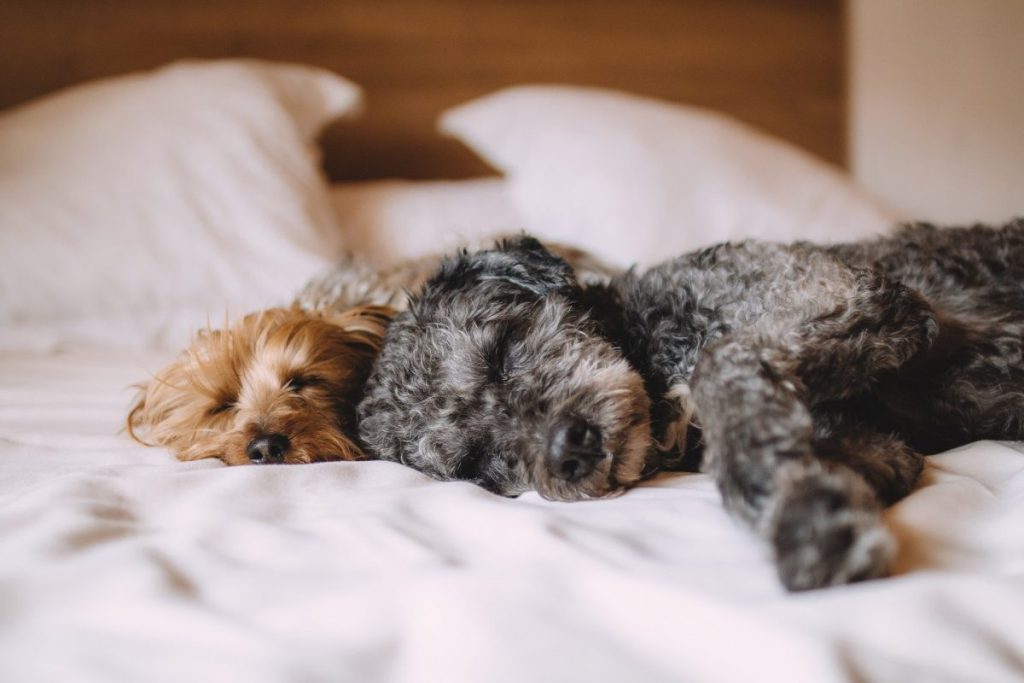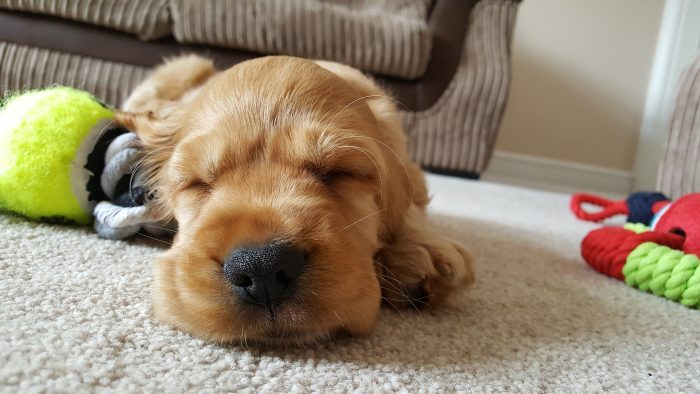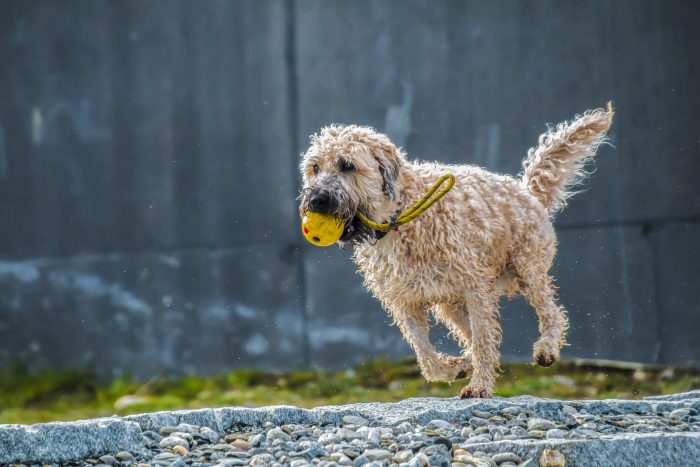Believe it or not, a good night’s sleep is just as important for your dog as it is for us humans. Research shows that the quality and length of sleep your four-legged friend gets each night can impact not only his health, but his behavior. Furthermore, studies have shown that when your pooch is sleep-deprived, a build-up of stress hormones can lead to negative side-effects, such as aggression or other misbehavior.
The fact is, all mammals require a solid night of rest – during deep sleep, both dogs and humans release the hormone melatonin, which helps to protect our cells while strengthening our immune systems. Therefore, if your dog isn’t getting enough shut-eye at night, it can be detrimental to his overall well-being. So the question is: how can you ensure your pup’s getting enough quality sleep? Here are a few suggestions:
How Much Sleep Does My Dog Need?
While cats are known for napping, dogs actually sleep during the day too, particularly while we’re away at work or out of the house. If you’re raising a puppy, it’s important to note that they require a great deal of rest in order to grow up strong, healthy, and well-adjusted to their environment.
On the other hand, the sleep patterns for your adult dog depends on his age, his size, and his daily activities – the larger the dog, the more sleep he’ll require. Very active dogs (such as police/rescue dogs and service dogs) actually require less sleep.
During his prime adult years, a healthy dog may take a nap after a brisk walk in the park, but he’ll most likely be awake and alert while you’re home. As your dog ages and health conditions (such as arthritis or hip dysplasia) manifest, he may slow down and require more rest. Here’s a general rule of thumb when it comes to sleep duration for your dog:
- Puppies: 12 – 18 hours a day
- Adult dogs: 14 hours a day
- Large adult dogs: Up to 18 hours a day
- Senior dogs: 18+ hours a day (depending on health and overall condition)
Give Him His Space
There are a variety of studies that show that sleeping with your pet is actually not a bad thing – in ancient times, people would co-habitate with their dogs for protection as well as warmth. Today, we sleep with our pets for companionship. However, providing your dog with his own bed is not only beneficial for both of you, but can allow him a better night’s rest.
In addition to protecting your furniture and keeping your bed free of pet dander and hair (particularly noteworthy if you suffer allergies), a doggie bed is good for your four-legged pal, especially as he gets older. For senior dogs, it grows increasingly difficult for him to jump up on your bed, whereas a dog bed can provide him with the extra support his joints require (the same theory applies to overweight dogs) and spare him from having to jump up and down on your furniture.
In addition, certain breeds prefer the comfort and sanctuary that a dog bed can provide. For example, small dogs like Chihuahuas actually prefer small enclosed spaces to give them a sense of safety.
For larger canines, choosing the right bed for your dog will honestly depend on his preferences and personality – you can try different styles until you find one that works for your pup. By paying close attention to your dog’s sleeping patterns and habits, you’ll discover the best dog bed to suit his body type, breed, and specific needs to ensure he gets a good night’s sleep.
Give Him a Workout for Good Zzz’s
In order to maintain your dog’s optimal health – including his sleep patterns – it’s important that he exercises and receives mental stimulation on a daily basis. A lack of activity can lead to insomnia, lethargy and even depression in your dog.
Ideally, try to get out for at least 30 minutes a day, whether it’s for a long walk around the neighborhood or tossing a ball around in the park; larger dogs and service dogs require more exercise. Creating a play/exercise/sleep routine for your dog will not only improve his overall health but extend his lifespan.
Tip: When leaving your dog alone for an extended period of time, give him a puzzle-like toy to work on while you’re away (toys with treats are especially fun for your dog). In addition to easing any anxiety he may have, these sort of toys help to keep your pooch’s body and mind stimulated and in prime condition.
Our fur babies love to sleep as much as we do, it’s true – so as long as you balance out their sleep, exercise and play routine, they’re sure to lead a long, healthy and happy life.






